
Renowned Greek composer Mikis Theodorakis died on Thursday at the age of 96 in Athens. One of the most important Greek composers, politician and writer and a living history of Greek song, passed away on Thursday morning, at the age of 96. This is a great loss for Greece and the world.
Mikis Theodorakis has written all kinds of music, from operas, symphonic music, chamber music, oratorios, ballet and church choir, to music for ancient drama, theater, cinema, art folk song and post-symphonic works. 
His work can be distinguished in three main periods:
During the first period (1937-1960) he composed symphonic and chamber music works according to Western European forms and modern techniques.
During the second period (1960-1980) he attempts to combine the symphony orchestra with folk instruments and creates new forms based on the human voice.
Since 1981 he had been returning to symphonic forms and has been involved in opera.
The composition of music around poems has been considered as the “central pillar of his creativity”, as the singer Nena Venetsanou has said. The poets who inspired his work: Angelos Sikelianos, Andreas Kalvos, George Seferis, Odysseas Elytis, Giannis Ritsos, Manolis Anagnostakis, but also Pablo Nerouda, Lorca, Bernard Biam. Their lyrics thus become accessible to the general public, framing folk songs that set fundamental values and constants in contemporary Greek music. After all, when he was a prisoner in Oropos, he wrote: “In the beginning it was my reason… .my greatest ambition is to faithfully serve mainly modern Greek poetry. To such an extent that listening to a song, you can not imagine the music in another text, nor the poem with different music.” Mikis Theodorakis essentially created the movement of Melodic Poetry, contributing to the emergence of a number of poets and the elevation of Greek song. At the same time, he helped an entire generation find its own voice.
His fame soon surpassed the country’s borders. He composed perhaps the most recognizable Greek rhythm internationally, the syrtaki from the film “Alexis Zorbas” (1964), while his songs were performed by famous artists, such as the Beatles, Shirley Basei and Edith Piaf. His music dreessed well-known films, such as “Z” (1969), which was awarded the BAFTA Prize for original music, “Phaedra” (1962), with songs with lyrics by Nikos Gatsos and “Serpiko” (1973), for whose music he was nominated for a Grammy in 1975 (he claimed the same award for his music “Alexis Zorba” in 1966).
At the same time, from a very young age he developed a rich history in the national resistance and the domestic political scene, while with various interventions, books and interviews he remained active until the end of his life.
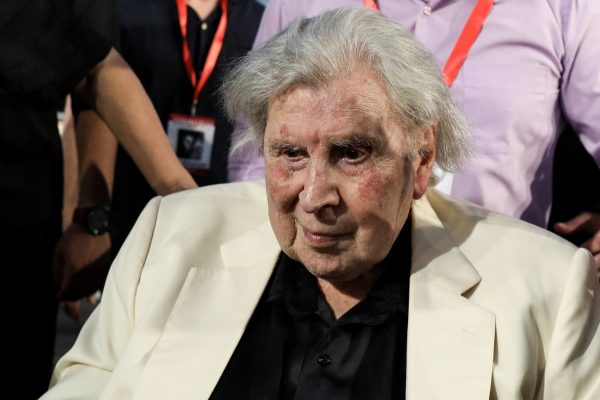
Curriculum vitae
Michael (Mikis) Theodorakis was born in Chios on July 29, 1925, to a Cretan father and a mother from Asia Minor. His father was a senior civil servant, so he spent his childhood moving to various cities in Greece, from Mytilene, Syros and Athens to Ioannina, Argostoli, Patras, Pyrgos and Tripoli. His first musical listenings were the psalms of the Orthodox Church, in which he took part as a cantor.
In the two years 1937-1939 he took his first violin lessons at the Patras Conservatory and created his first songs, compositions based on lyrics by Solomos, Palamas, Drosini and Valaoritis, which he found sometimes in school books and sometimes in the library of his home. In Tripoli, just 17 years old, he gave his first concert presenting his work “Cassiani” and took part in the resistance against the Italian and German occupiers. In the great demonstration of March 25, 1943, he was arrested for the first time by the Italians and tortured.
He escaped to Athens, where in 1943 he began his musical studies at the Athens Conservatory and became acquainted with European artistic music. Until that time, he has been influenced by Byzantine music, had formed a choir and had composed songs and pieces for violin and piano. At the same time he undetook activities within the resistance. He joined the youth resistance organization EPON and in 1944 became the organization’s secretary for culture. In the same year he joined the reserve ELAS of Athens and took part in battles against the Germans and the Security Battalions. He was also active during the December 1944 uprising. Because of his progressive ideas, he was persecuted by the police. For a while he lived underground in Athens without stopping his revolutionary activity. In 1947 he was exiled to Ikaria and a year later transferred to Makronisos, from where he was dismissed in August 1949.
Due to his political activities and the persecutions he suffered, he was late to get his diploma from the Conservatory in harmony, counterpoint and fugue, something that happened in 1950. From 1954 to 1957, he studied in Paris with a scholarship and he wrote the three ballets “Antigone”, “Les Amants de Teruel” and “Le Feu aux Poudres”, which were successful in the French capital and London, while at the same time he composed the work “Oedipus Rex”. In 1957 he received the gold medal at the Moscow Festival for the “First Symphony for piano and orchestra”.
In 1960 he returned to Greece. He had already made his great musical decisions from Paris. Radically disagreeing with the new trends and loaded with emotion, lyricism and tradition, he composed in 1958 the “Epitaph”, with lyrics by Giannis Ritsos, a work that was to seriously influence the evolution of Greek folk music.
“Axion esti” will become his first major work with a choir, which the composer calls “folk oratorio – post-symphony”, a characterization that states “not so much the time distance as the qualitative difference between Western and modern Greek music”. His inspiration is the poetry of Odysseus Elytis, but also folk songs, while there are many modernist elements that frame the work, such as the simultaneous presence on the one hand of the narrator-singer and the folk singer and on the other hand of the classical and folk orchestra.
In 1963, together with Manos Hadjidakis, he founded the Small Symphony Orchestra of Athens and gave many concerts all over Greece, trying to acquaint the world with the masterpieces of symphonic music. In the meantime, he continued his political action. He became a founding member of the Democratic Youth of Lambrakis, of which he was also president (1964-67), while in 1963 he was arrested because he took part in the 1st Peace Marathon and while he was already known as a composer and in fact very popular.
In 1964 he was elected for the first time as deputy for the EDA party in the 2nd constituency of Piraeus and, a year later, a member of the Executive Committee of the same party. In 1967, the dictatorship of the colonels banned the execution, sale and listening of his songs. In the same year (1967) he became a founding member of the resistance organization “Patriotic Anti-dictatorship Front” (PAM) and due to his actions he was arrested in August 1967. What followed was imprisonment at the Security HQ on Bouboulinas Street, isolation, Averoff prison the hunger strike , the hospital, the release from prison and house arrest, the deportation with his family to Zatouna, Arcadia and, finally, the Oropos camp. During all this time he composed continuously, while he managed to send many of his works abroad in various ways, where they are performed by Maria Farantouri and Melina Mercouri.
In Oropos, his health condition deteriorated dangerously. A storm of protests raged from abroad. Celebrities such as Dmitry Shostakovich, Arthur Miller, Lawrence Olivier and Yves Montand set up committees for his release. Finally, in 1970, under these pressures and with the mediation of the French politician and writer Jean-Jacques Cervan Schreber, the dictatorship allowed him to go to Paris.
Mikis Theodorakis sings Romiosini. From the legendary concert in July 1974, after the fall of the junta, at the stadium on Alexandras Avenue
In the same year he became president of PAM and a member of the Politburo of the KKEes. From its liberation until the fall of the dictatorship in August 1974, he gave concerts around the world propagating the resistance of the Greek people and calling for the fall of the dictatorship. At the same time, in Greece his songs were heard illegally and he became a symbol of resistance.
In 1972 he founded the political movement “New Greek Left” and became a co-founder of the National Council of Resistance. In 1974 he was a candidate for MP of Piraeus II with the “United Left”. In 1975 he was re-elected a member of the Executive Committee of the EDA, while in 1978 he participated in the municipal elections as a candidate for mayor of Athens, supported by the communist party KKE. A year later he became a founding member of the Movement for the Unity of the Left (KEA).
Musically, in the period 1967 to 1980 he focused particularly on the composition of song cycles, composing 22 cycles, among them the “Songs of the struggle”, “The sun and time”, “Novel”, “Arcadia I, II, III, IV, VIII, X, XI “,” Ballads” and others. The composition of Canto General is one of his most memorable, a world-famous work based on the poem by Pablo Neruda. The play began to be composed in Paris in 1972, where it premiered at the Humanité festival in September ’74, while in Greece it was heard for the first time at the big concerts held at the Karaiskaki Stadium and at the Panathinaikos Stadium in August 1975.
Zorbas: The work that made tiny Greece famous to the ends of the Earth. Millions around the world have danced to this beat.
In 1981 he was elected member of parliament for Piraeus II on the ballot of the KKE and in 1985he was again elected member of parliament again with the KKE. In 1987 he was a founding member of the Greek-Turkish Friendship Committee. In 1989, together with the director Theodoros Angelopoulos, he became a founding member of the European Film Academy, which awards the “Felix” awards. On October 16, 1989, he was included in the New Democracy State ballot. He was elected in the November 5 elections and was re-elected in the April elections
In both cases, he submitted a statement according to which he was an independent member of parliament, collaborating with ND. As he had stated in the press, he enlisted with the ND “which is the strong bulwark that can take the country out of the national impasses to which it was led by the eight-year policy of PASOK”. From November 29, 1989, until the elections of April 8, 1990, he was an independent MP working with the New Democracy party.
In April 1990 for the first time he took over a government position as Minister Without Portfolio in the government of Konstantinos Mitsotakis, until August 1991, when he took over as Minister of State. On March 30, 1992, he resigned as minister to devote himself, he said, to his musical work. At the same time, he declared support for the Mitsotakis government and participation in the work of the Parliament as an independent MP, collaborating with ND.
In early September 1992, he submitted his resignation from the European Film Academy because it accepted in its competition section a film from FYRoM, as coming from the “Republic of Macedonia”. In 1992 he composed the anthem of the Barcelona Olympic Games and the same year, on October 12, he submitted a declaration of independence to the presidency of the Parliament, ending his cooperation with the ND parliamentary group, while stating that he supported the policy of the Mitsotakis government. On March 9, 1993, he resigned as an MP and took over as general manager of state broadcaster ERT’s music programs. 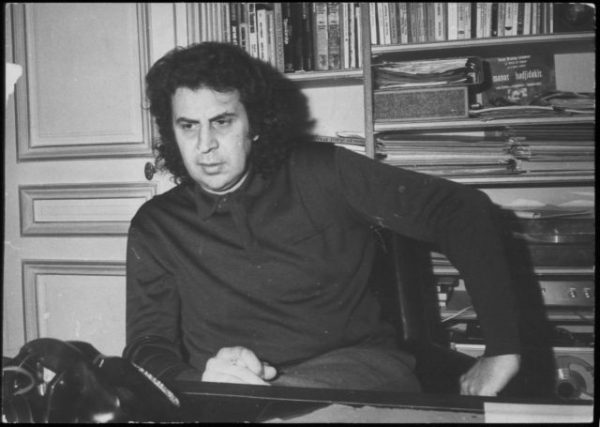
On June 16, 1994, he resigned from the position of general manager of ERT’s music ensembles, denouncing the government of A. Papandreou and the general management of ERT for attempting to destroy the organization by suffocation. His resignation was accepted by the Board of ERT on October 5. In June 1996, he was appointed a member of the National Tourism Council set up by Development Minister Vasso Papandreou.
On December 1, 2010, he announced the establishment of an Independent Citizens’ Movement called “Spitha” against the “Memorandum” regime, with the aim of involving every independent citizen in the country’s exit from the deep crisis, which was forced by the international crisis. of capitalism and prominent political and economic circles dependent on international centers. On February 1, 2012, together with Manolis Glezos and the professor of Constitutional Law, Giorgos Kasimatis, they presented the political movement “ELADA” (United People’s Democratic Resistance) with the aim of forming a large anti-memorandum front. 
On September 19, 2013, he announced his “retirement” from the political life of the country, without, however, stopping his interventions until the end, as when in May 2017, together with other spirited personalities, he called on the people to come down to the Constitution Square to protest, in front of Parliament, “against the coup and catastrophic 4th memorandum”.
Finally, two important musical events marked 2017 in terms of the great composer: The concert given on May 24, 2017 in Düsseldorf, Germany by the city’s historic orchestra, playing three symphonic works by Mikis Theodorakis (2nd and 3rd Symphony and “Oedipus Rex”) Under the direction of Baldur Brönnimann, as well as the show – tribute” ALL GREECE FOR MIKIS” at the Kallimarmaro Stadium on June 19. For the first time, 1,000 choir members from 30 cities in Greece formed a huge choir, which, accompanied by a Symphony Mandolin, performed some of the masterpieces of the great creator.
Awards and distinctions
Mikis Theodorakis has been honored with many awards and distinctions, such as the “Lenin” Peace Prize of the Soviet Union (1983), the Order of the Phoenix awarded on July 24, 1995 by the President of the Republic Kostis Stefanopoulos, and the Order of the Legion of Honor, highest distinction of the French Republic (March 1996). On May 27, 1996, the University of Athens “unanimously” awarded him an honorary doctorate from the Department of Music Studies, and in March 2000, he was awarded an honorary doctorate from the Department of Music Studies at the Aristotle University of Thessaloniki (AUTh). In July 2002 he was honored with the German Music Prize “Erich Korngold” and in May 2005 with the International Music Prize for 2005 by the International Music Council and UNESCO. Also, in March 2007 he was honored with the Brigadier General of the Legion of Honor of the French Republic, while in May 2013 the Plenary Session of the Academy of Athens elected him an honorary member and in December of the same year his official welcoming ceremony took place.
Books
The written work of Mikis Theodorakis is also rich. Among others, he wrote the books “The debt” (two volumes), published by Tetradia tis Dimokratias 1970-1971, “Music for the masses”, published by Olkos, 1972, “Elements for a new policy”, “Democratic and centralized left” , published by Papazisis, 1976, “Penelope’s suitors” published by Papazisis, 1976,” On Art “, 1976, published by Papazisis,” “The change. Problems of unity of the Left “, 1978,” Fighting Culture “, 1982,” For Greek music “, 1983 (in 1986 it was republished by Kastaniotis),” Anatomy of contemporary music “, published by Modern Era, 1983,” Star System ” “, Published by Kaktos, 1984,” The roads of the archangel “(autobiography in five volumes), published by Kedros, 1986-1995,” Wanted Left “, published by Sideris, 1989,” Antimanifesto “, published by Gnosi,” Where shall we go? ”, published by Gnosi, 1989,“ Anatomy of Music ”, published by Alfeios, 1990,“ To enchant and get drunk ”, 2000, published by Livani,“ The Manifesto of the Lambrakis ”, published by Ellinika Grammata, 2003, the trilogy “Where to find my soul”, 2003, published by Libani, with excerpts from interviews, articles and speeches of the last decade, “Manou Hatzidaki praise”, 2004, published by Ianos, “Spark for an independent Greece and strong “, published by Ianos, 2011,” Dialogues in twilight-90 interviews “, published by Ianos, 2016, and” Monologues in tears “, published by Ianos, 2017.
He also wrote many cycles of poems that he composed, including “The song of the dead brother”, “The Sun and Time”, “Arcadia I”, “Arcadia VI” and “Arcadia X” and “Song of the land” from symphony No. 2. He has also published many works in French.
He donated his personal archive to the Lillian Voudouri Music Library and is accessible to interested scholars.
Latest News
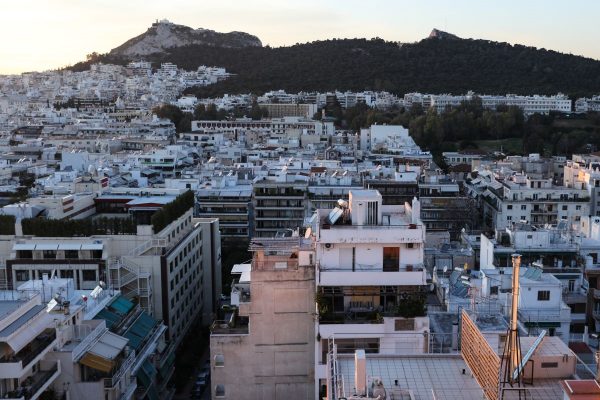
How to Buy Your First Home Tax Free In Greece
Greece's tax authority has compiled a guide addressing the most common questions regarding the transfer tax exemption for first-time home purchases.

Greece’s Inflation Eases to 2.5% in February, but Key Costs Still Soar
The data shows significant price increases in certain sectors, with hotels seeing a rise of 17.5%, air travel prices going up by 10.8%, rent rising by 9.9%, and health insurance premiums climbing by 7%.
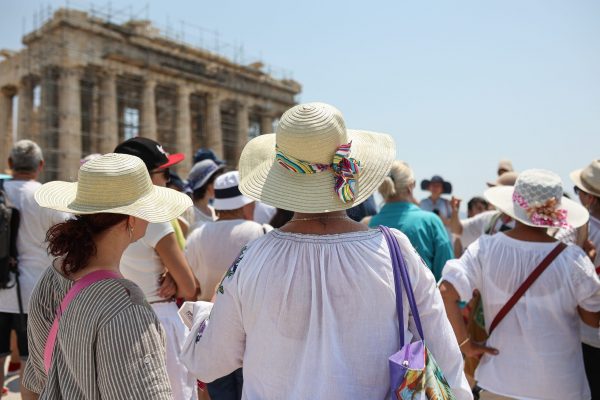
Greek Tourism Booms with 6-7% Rise in Bookings This Season
Data from ITB Berlin highlights Crete and Rhodes as the top-performing destinations, maintaining their strong appeal among European travelers with double-digit booking increases.

ENFIA 2025 Property Tax Statements Now Available on Taxisnet
Properties valued at up to 500,000 euros that are insured against earthquakes, fires, and floods for the entire duration of 2024 will receive a 20% discount, double the 10% offered last year.
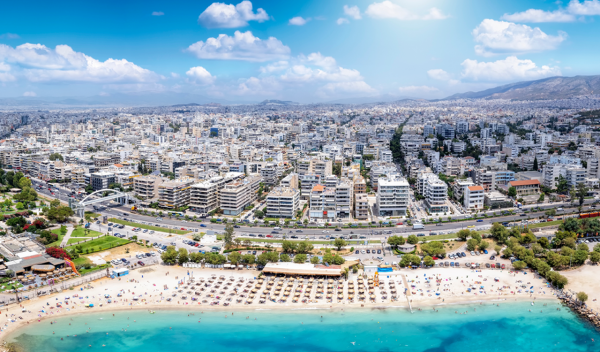
Attica’s Real Estate Market: Prices Surge 88% Since 2017
The city center remains a key area of interest, with an average asking price of 2,524 euros per square meter, reflecting a 5.21% increase from February 2024.
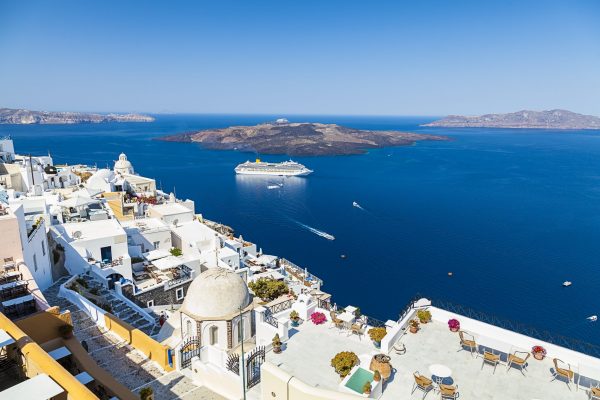
Cruise Tourism in Greece to Soar Despite Santorini’s Earthquakes
Another key development in Greece’s cruise industry is the increase in port fees, particularly in high-traffic destinations like Mykonos and Santorini

The Gender Pay Gap: Women Are Still Paying the Price of Inequality
The gender pay gap continues to persist across the European Union, according to Eurostat - Factors such as workplace discrimination, stereotypes, and the unequal distribution of family responsibilities contribute to its ongoing existence

International Women’s Day: The Legacy of Theresa Serber Malkiel
Many accounts have long associated the origins of International Women’s Day with a supposed March 8, 1857, textile workers’ strike in New York. Some even claim that Malkiel intended to honor that event

International Women’s Day: Celebrating Achievements, Advancing Equality
The United Nations plays a central role in International Women’s Day celebrations, selecting an annual theme to highlight pressing issues affecting women worldwide.

Morningstar DBRS Upgrades Greece to BBB, Trend Changed to Stable
The trend on all ratings has returned to stable from positive,























![ΑΕΠ: Ανεβάζει τον πήχη της ελληνικής ανάπτυξης στο 2,5% η Εθνική Τράπεζα – Οι προοπτικές για τις επενδύσεις [γραφήματα]](https://www.ot.gr/wp-content/uploads/2025/02/Greek-economy-600x352.jpeg)
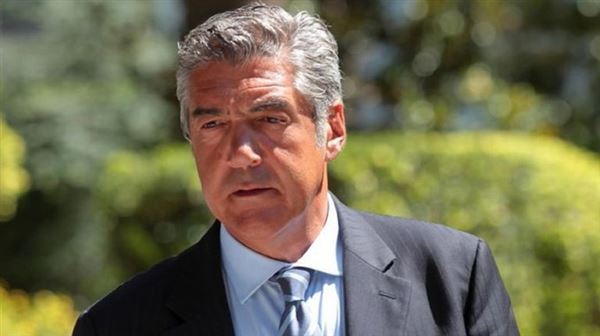
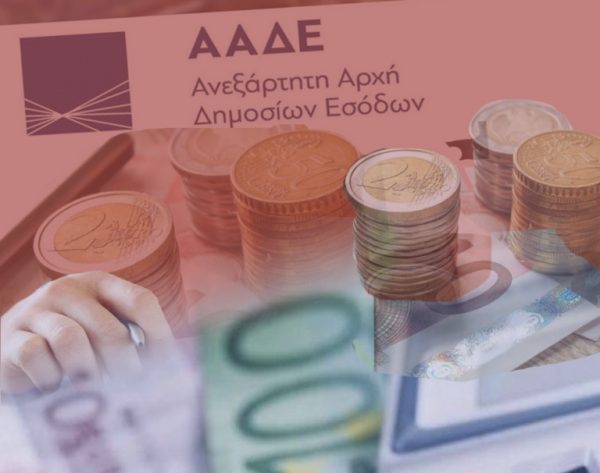


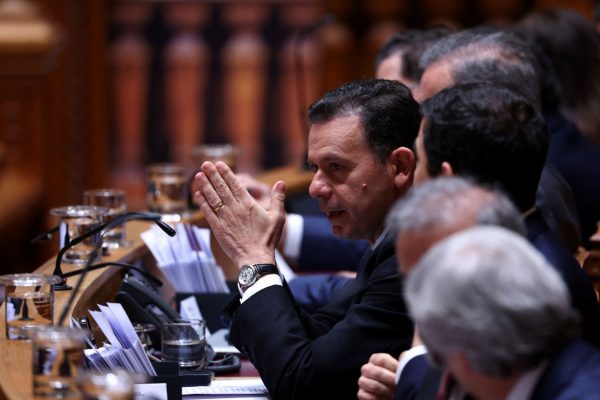
![Ποιοι απαλλάσσονται από τον Ενιαίο Φόρο Ιδιοκτησίας Ακινήτων 2025 [Α Μέρος]](https://www.ot.gr/wp-content/uploads/2024/06/akinita-888-efimerida-600x400.jpg)








 Αριθμός Πιστοποίησης Μ.Η.Τ.232433
Αριθμός Πιστοποίησης Μ.Η.Τ.232433